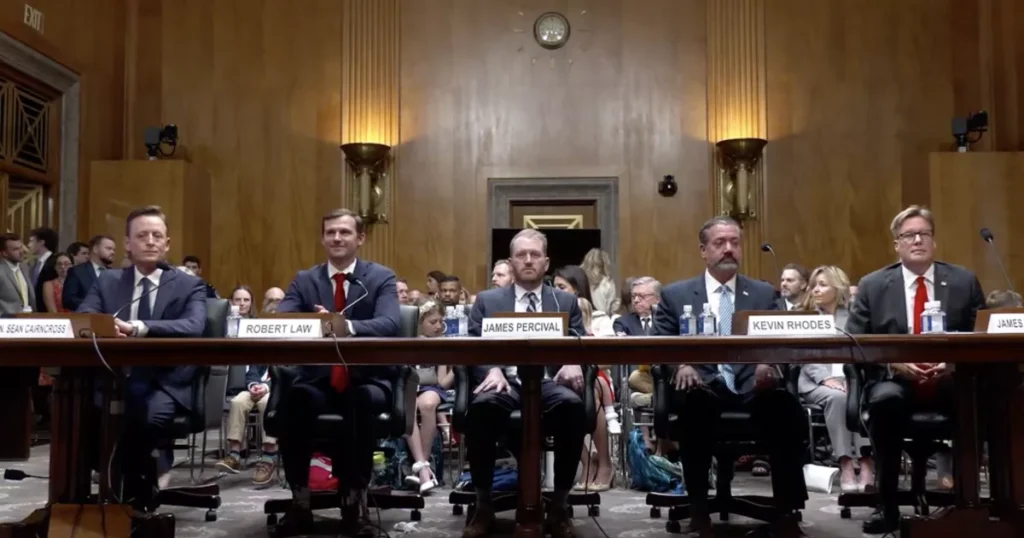The U.S. Senate recently advanced the nomination of Robert Law to serve as Under Secretary for Strategy, Policy, and Plans at the Department of Homeland Security (DHS). While the cloture vote on his nomination passed, the process highlighted the growing intersection between national security, climate change, and disaster response. For those of us focused on sustainability and climate resilience, this nomination carries more weight than it might appear on the surface.
Why This Position Matters for Climate
The DHS is not just about border security or counterterrorism. It also plays a critical role in responding to climate-driven threats. In 2021, DHS released an action plan outlining its mission to address the impacts of climate change, ranging from rising sea levels to extreme heat and inland flooding. The plan specifically emphasized the need for the Office of Strategy, Policy, and Plans—the very office Law would oversee—to incorporate climate science into national strategy and policymaking.
That means the Under Secretary for this office is directly responsible for shaping how the DHS adapts to and mitigates climate-related risks. This includes preparing for the operational challenges climate change poses to critical infrastructure, coordinating disaster relief efforts, and integrating resilience planning into homeland security strategies.
For more on how these policies connect with broader sustainability efforts, visit Sustainable Action Now.
Climate Change and Migration
One of the most important intersections between DHS policy and climate change is migration. The 2021 DHS action plan acknowledged that catastrophic events like floods, droughts, and hurricanes can displace populations, creating both humanitarian and logistical challenges for DHS. These events may strain border security, stress detention facilities, and stretch resources during simultaneous climate emergencies.
Law’s professional background is heavily immigration-focused. He previously worked on immigration and border security policy during the Trump administration and authored policy briefs centered on border management. This expertise could help DHS navigate the increasingly complex link between climate-driven migration and border operations. Still, his nomination raises questions about whether his immigration-first background will align with the broader sustainability mission outlined in the 2021 plan.
The Senate Vote: Climate on the Edges
The cloture vote for Law’s nomination was delayed temporarily by Senator Ted Budd (R-NC). Budd’s hold was not directly about Law but rather a protest against slow federal reimbursement for Hurricane Helene relief, a climate-driven disaster that devastated communities in his state. While unrelated to Law’s record, this procedural moment underscores how climate emergencies are increasingly at the center of homeland security debates.
Budd later clarified that he was “fine with” Law as a nominee, and his objection was aimed at DHS’s disaster response funding, not the candidate himself.
Law’s Record on Climate and Sustainability
In his prepared Senate testimony, Robert Law focused almost exclusively on his immigration policy background and his commitment to carrying out the vision of the current DHS Secretary. Notably, there is no public record of Law making substantial commentary on climate change, sustainability, or environmental security issues. His policy work has largely remained centered on immigration enforcement and border management.
This absence of a climate-focused record is concerning given the growing responsibilities of DHS in managing climate resilience. The Under Secretary role he has been nominated for requires balancing not only immigration and security concerns but also the integration of climate science into the agency’s policies. Whether Law is prepared to expand beyond his established immigration portfolio to fully engage in climate-related homeland security challenges remains an open question.
Why This Matters for Sustainable Action
At Sustainable Action Now, we believe that climate change is not just an environmental issue—it’s a national security issue. Rising seas threaten military bases, extreme heat endangers frontline workers, and climate-driven migration will continue to reshape global demographics. DHS is uniquely positioned to lead in preparing for these challenges, but its leadership must recognize climate as a core part of its mission.
Robert Law’s nomination illustrates a larger tension: will the Department of Homeland Security embrace its responsibility to tackle climate risks with urgency, or will those priorities remain sidelined by traditional security concerns? The Senate’s confirmation process touched on this intersection, but it’s clear that the real test will come in how DHS implements its climate action plan under Law’s leadership.
The passage of Robert Law’s cloture vote is another step in shaping DHS leadership for the years ahead. While his expertise in immigration policy is undeniable, the absence of a public climate track record leaves many sustainability advocates watching closely. With the DHS climate action plan already in place, much will depend on whether Law embraces the department’s stated mission to integrate climate science into national strategy.
As climate-related disasters, from hurricanes to wildfires, become more frequent and destructive, leadership at DHS must rise to the occasion. The true measure of Law’s tenure will not be how well he manages immigration policy alone, but how effectively he leads DHS in preparing for the climate realities of today and tomorrow.
For continued coverage on how climate intersects with national security, policy, and sustainability, follow Sustainable Action Now.


